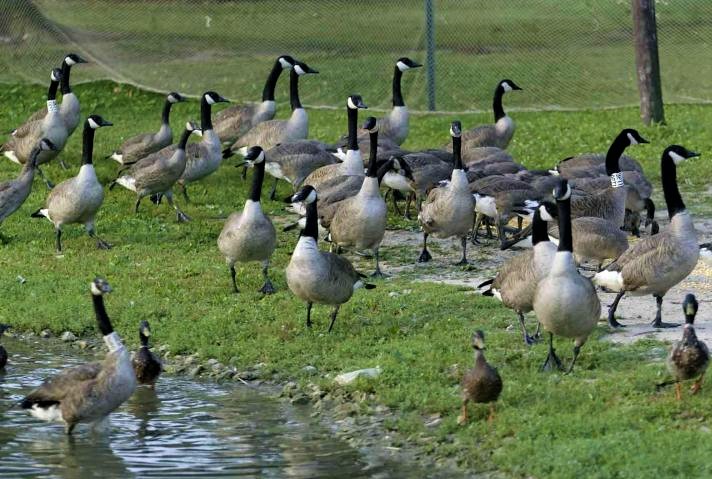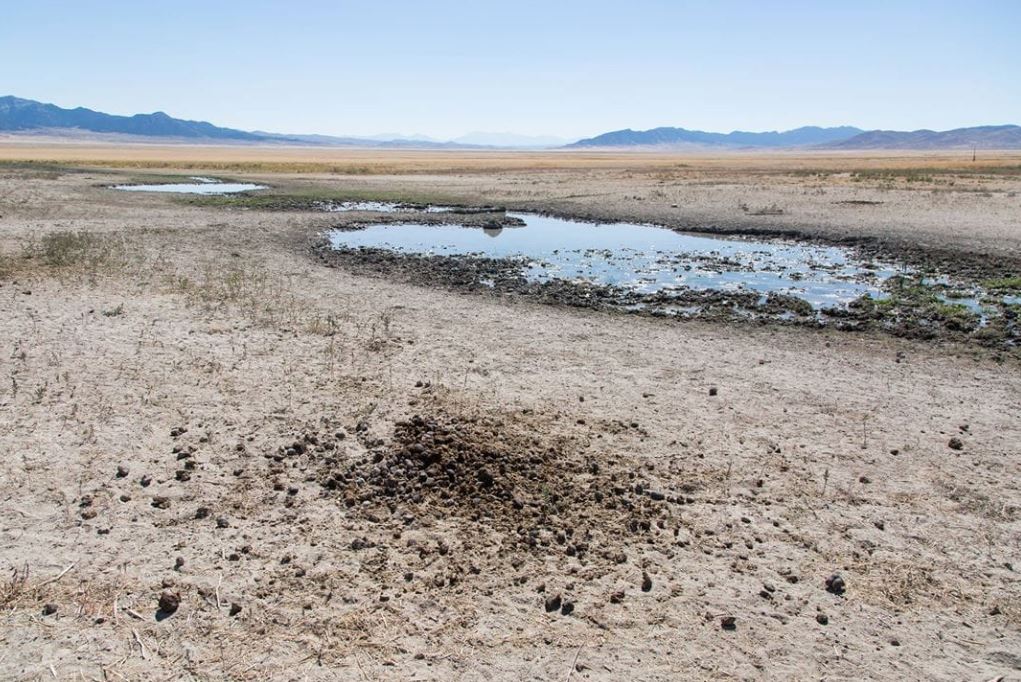Of course, the primary safety consideration at issue here, the situation that triggered the roundup in the first place, is the nearly three tons of geese poop city officials claimed are deposited by geese in parks and public places every single day. City officials with the Denver Parks and Recreation Department told 9NEWS.com that “the health of area lakes and ponds” is jeopardized from all that avian manure.
Dan Murphy
In Denver, it’s not a good time to be a member of the species Branta canadensis, also known as Canadian geese.
That’s because city officials have contracted with crews from USDA to start rounding up geese from among the flocks that overpopulate city parks and ponds … in order to kill them.
Let me rephrase that: In order to kill the birds so that the meat can be donated to needy families. Only for some reason, agencies within the actual Denver metropolitan are specifically excluded from receiving the meat for distribution.
According to a report by the local NBC affiliate website 9NEWS.com, Kendra Cross, a USDA biologist, told the TV station that both the location of the facility where the birds are being processed, as well as the exclusion of Denver-area recipients, is being done “as a safety precaution.”
One has to assume she’s talking about public safety, as in potentially disruptive actions from animal activists, rather than food safety.
Of course, the primary safety consideration at issue here, the situation that triggered the roundup in the first place, is the nearly three tons of geese poop city officials claimed are deposited by geese in parks and public places every single day. City officials with the Denver Parks and Recreation Department told 9NEWS.com that “the health of area lakes and ponds” is jeopardized from all that avian manure.
The real rationale for culling
As usual, the debate over the removal of a percentage of Denver’s resident geese population quickly degenerated into partisan takes on the appropriateness of the city’s policy — without much discussion whatsoever about the underlying cause of the overpopulation.
More on that in a moment.
City officials stated that they’re confident the culling will reduce the threat of pollution.
We’ve removed a lot of the resident population [of geese],” said Scott Gilmore, the deputy director of Denver Parks and Recreation. “No matter what, it will take time for that resident population to grow back. So we just have to manage the situation.”
Others were not so sanguine about the removal policy’s effectiveness.
“Killing them will not work in the long run,” Dr. Marc Bekoff, a professor emeritus of Ecology and Evolutionary Biology at the University of Colorado-Boulder, told the television station. “We will face this problem next year, as they faced in the past.”
Bekoff’s academic credentials are certainly impressive, but his political inclinations might be coloring his take on the goose removal question.
That’s because he also serves as a member of the Ethics Committee of the Jane Goodall Institute and he and Goodall co-founded the organization Ethologists for the Ethical Treatment of Animals: Citizens for Responsible Animal Behavior Studies.
Kind of a red flag when a group has the phrase “ethical treatment of animals” in its title.
And no knock on Ms. Goodall, world-famous for her pioneering work in helping protect Africa’s chimpanzee population, but it’s doubtful she’d ever approve of human interaction to manage wildlife populations — especially when such “management” involves killing off a significant percentage of that population.
The problem here, as is true in virtually every initiative by wildlife managers to control overpopulation of some species, is that they have to resort to what’s known in healthcare as “tertiary prevention” — which isn’t at all about prevention, but rather after-the-fact intervention to try to mitigate the damage already done.
When wildlife cause problems for people, it’s for one of two reasons: either humans have encroached on their habitat — efforts to relocate and/or “remove” bears or cougars after they’ve attacked or threatened hikers or rural residents come to mind — or the fact that natural predators have been eliminated, allowing unsustainable overpopulation of prey animals to occur.
Free Range Report
Thank you for reading our latest report, but before you go…
Our loyalty is to the truth and to YOU, our readers!
We respect your reading experience, and have refrained from putting up a paywall and obnoxious advertisements, which means that we get by on small donations from people like you. We’re not asking for much, but any amount that you can give goes a long way to securing a better future for the people who make America great.
[paypal_donation_button]
For as little as $1 you can support Free Range Report, and it takes only a moment.



